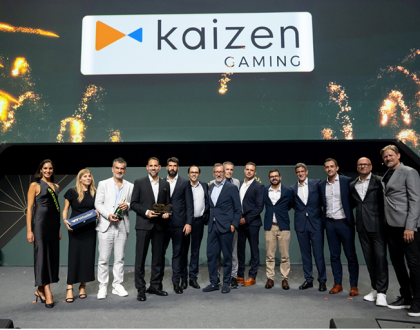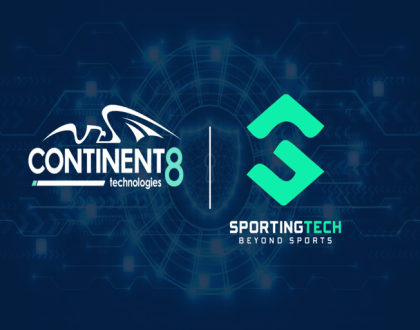Global Licensing in iGaming for Success

Over the past few years, the iGaming industry has experienced significant growth and expansion worldwide. One crucial aspect that sets successful iGaming operators apart is obtaining global licensing for their operations. This not only provides credibility and legitimacy to their business but also allows them to cater to a broader market and enjoy legal protection in various jurisdictions.
The Landscape of iGaming Licensing
While the iGaming industry continues to experience rapid growth, licensing plays a crucial role in determining the success and credibility of online gambling operators. Understanding the landscape of iGaming licensing is crucial for companies looking to enter this competitive market.
Overview of Global iGaming Markets
iGaming has become a global phenomenon, with markets expanding across continents. Europe leads the way in terms of revenue and regulation, with countries like the UK, Malta, and Gibraltar establishing themselves as key hubs for online gambling. The Asia-Pacific region is also witnessing significant growth, particularly in markets like Macau and the Philippines. North America, on the other hand, remains a complex landscape due to varying regulations in different states.
Different Licensing Jurisdictions and Their Impact
Licensing is a critical aspect of operating in the iGaming industry, as it ensures that operators adhere to strict regulations and standards. Different jurisdictions have varying requirements and standards for obtaining a license, with some being more stringent than others. For example, the UK Gambling Commission is known for its rigorous requirements, while offshore jurisdictions like Curacao offer more flexibility but may not provide the same level of player protection.
Plus, understanding the implications of operating under different licensing jurisdictions is crucial for iGaming companies to navigate the complexities of the global market. It is crucial to weigh the pros and cons of each jurisdiction carefully to ensure compliance and sustainability in the long run.
The Licensing Process
Steps to Acquire an iGaming License
One of the most critical steps in establishing an iGaming business is acquiring the proper licensing. The process can vary significantly depending on the jurisdiction, but there are some common steps that applicants must typically follow. These steps often include submitting an application, undergoing background checks, providing detailed business plans, and demonstrating compliance with regulatory requirements.
Common Challenges and Solutions
Common challenges in the licensing process can include navigating complex regulatory landscapes, securing adequate finances, and addressing legal concerns. One solution to these challenges is to work with experienced legal and regulatory experts who can provide guidance throughout the process. These professionals can help businesses understand and meet all licensing requirements, increasing the likelihood of a successful application.
The licensing process can be arduous and time-consuming, but the rewards of obtaining a reputable iGaming license are well worth the effort. By securing a license, operators can access new markets, gain credibility with players and partners, and demonstrate a commitment to responsible gaming practices.
Types of iGaming Licenses
Not all iGaming licenses are created equal. There are different types of licenses offered by various jurisdictions, each with its own set of regulations and requirements. Understanding the different types of licenses available is vital for operators looking to enter the iGaming market and navigate the complex regulatory landscape.
- Casino License – This license allows operators to offer casino games such as slots, table games, and live dealer games.
- Sports Betting License – Operators holding this license can offer sports betting services, including both pre-match and in-play betting.
- Poker License – This license is specifically for operators looking to offer online poker games.
- Lottery License – Operators with this license can offer lottery services, including scratch cards and draw games.
- Combined License – Some jurisdictions offer a combined license that allows operators to offer multiple types of iGaming services under one license.
Categories of Gaming Licenses
Licenses for iGaming operations can typically be categorized into two main types: primary licenses and secondary licenses. Primary licenses are required for core gaming activities such as casino games, sports betting, and poker. Secondary licenses may be required for additional services such as payment processing, affiliate marketing, and software provision.
Knowing which category of license is required for your specific iGaming operation is crucial to ensure compliance with regulatory requirements and avoid penalties.
License Requirements for Various iGaming Services
On top of the different types of licenses available, each jurisdiction also imposes specific requirements for obtaining a license for various iGaming services. These requirements may include background checks on key personnel, financial stability checks, and compliance with anti-money laundering regulations.
Services such as payment processing and player registration are often subject to more stringent requirements due to their potential impact on the security and integrity of the iGaming operation. Operators must ensure they meet all necessary requirements to obtain and maintain their licenses.
Regulatory Frameworks and Compliance
Understanding International iGaming Regulations
Regulations play a crucial role in shaping the global iGaming industry. As the online gambling sector continues to expand across borders, it is necessary for operators to navigate the complex web of international laws and regulations. Understanding the different regulatory frameworks in various jurisdictions is key to ensuring compliance and staying ahead of the curve in the rapidly evolving iGaming landscape.
From licensing requirements to consumer protection measures, each country has its own set of rules governing online gambling activities. Keeping abreast of these regulations is vital for operators looking to operate legally and sustainably in multiple markets around the world.
The Role of Compliance in a Successful iGaming Business
iGaming companies must prioritize compliance to thrive in the highly regulated environment of online gambling. Compliance not only ensures adherence to legal requirements but also fosters trust among players and stakeholders. Implementing robust compliance measures can help iGaming operators mitigate risks, protect their reputation, and maintain long-term sustainability in the industry.
To maintain a successful iGaming business, operators must invest resources in compliance programs that cover a wide range of areas, including anti-money laundering practices, responsible gaming initiatives, data protection protocols, and more. By prioritizing compliance, iGaming companies can demonstrate their commitment to operating ethically and responsibly, ultimately enhancing their competitiveness and credibility in the global market.
Strategic Benefits of Licensing
Market Access and Expansion Opportunities
The acquisition of a global license in the iGaming industry can open up numerous market access and expansion opportunities for operators. Having a license from a reputable jurisdiction provides operators with the legal framework to enter new markets and offer their services to a wider range of players. This not only increases the operator's potential customer base but also allows them to tap into new revenue streams in different regions around the world.
Building Trust with Players and Business Partners
Trust is a crucial currency in the iGaming industry. By securing a global license, operators can demonstrate their commitment to transparency, fairness, and compliance with regulatory standards. This helps to build trust with both players and business partners, as they can have confidence that the operator operates with integrity and their interests are protected.
Building trust with players and business partners is imperative for long-term success in the iGaming industry. Operators that are licensed are more likely to attract new players and establish partnerships with other service providers. This can lead to increased customer loyalty, higher player retention rates, and ultimately, a stronger competitive position in the market.
Risk Management in Licensing
Identifying and Mitigating Licensing Risks
To effectively navigate the complex world of global licensing in the iGaming industry, it is necessary to identify and mitigate potential risks. Inadequate understanding of regulatory requirements, failure to comply with local laws, and lack of transparency in business operations can all pose significant challenges to obtaining and maintaining licenses in various jurisdictions. By conducting a comprehensive risk assessment, operators can proactively address potential obstacles and develop strategies to mitigate them.
The Importance of Due Diligence in Global Licensing
One of the most critical aspects of global licensing is due diligence. In the highly regulated iGaming sector, conducting thorough due diligence on partners, suppliers, and third-party service providers is paramount to ensure compliance with regulatory standards and mitigate risks. Operators must verify the reputation, financial stability, and legal standing of their business partners to safeguard their operations and uphold the integrity of their licenses.
This level of scrutiny is crucial as failure to conduct proper due diligence can result in severe consequences, including license revocation, hefty fines, and irreparable damage to reputation. Therefore, operators must prioritize due diligence as a fundamental element of their licensing strategy to ensure long-term success in the global market.
Trends and Future Outlook in iGaming Licensing
Innovations Shaping iGaming's Regulatory Landscape
Outlook: Keep an eye on the innovations that are shaping the regulatory landscape of iGaming. Technologies like blockchain and artificial intelligence are revolutionizing how online casinos operate and adhere to licensing requirements. These advancements not only enhance security and transparency but also streamline regulatory processes, making it easier for operators to comply with licensing conditions.
Leveraging these technological advancements can significantly improve the efficiency and effectiveness of iGaming licensing procedures. By integrating these innovations into their operations, iGaming companies can stay ahead of the curve and ensure a smoother regulatory experience.
Predictions for Emerging iGaming Markets
With the rapid growth of the iGaming industry, predictions for emerging markets are crucial for operators looking to expand their global reach. Regions like Asia-Pacific, Latin America, and Africa show immense potential for iGaming growth, with evolving regulatory frameworks and increasing demand for online gaming entertainment.
Operators should closely monitor these markets and adapt their strategies to meet the unique regulatory and consumer demands of each region. By recognizing the opportunities presented in emerging markets, iGaming companies can position themselves for sustainable growth and success in a rapidly evolving industry landscape.
Landscape: As emerging markets continue to open up to iGaming opportunities, it is necessary for operators to conduct thorough research and due diligence before entering these regions. Factors such as local regulations, consumer preferences, and competition dynamics play a critical role in determining the success of iGaming ventures in new markets. By understanding the nuances of each emerging market and tailoring their offerings accordingly, iGaming operators can capitalize on the immense growth potential while mitigating risks associated with unfamiliar territories.
Final Words
To wrap up, global licensing is important for iGaming operators to achieve success in the constantly evolving industry. By obtaining licenses in multiple jurisdictions, operators can access new markets, build trust with players, and ensure compliance with regulations. It provides a passport to reach a global audience and expand their business opportunities.
As the iGaming landscape continues to grow and become more competitive, having a global licensing strategy will be crucial for operators to stay ahead of the curve. By understanding the benefits and importance of global licensing, operators can set themselves up for long-term success and sustainability in the dynamic world of online gaming.
FAQs
What is the importance of obtaining a global license for iGaming operators?
Obtaining a global license is crucial for iGaming operators as it provides credibility, legal protection, and the ability to access broader markets. This helps in building trust with players and business partners, ultimately leading to business growth and sustainability.
What are the common steps involved in acquiring an iGaming license?
The common steps typically include submitting an application, undergoing background checks, providing detailed business plans, and demonstrating compliance with regulatory requirements. The specifics can vary depending on the jurisdiction.
How do different licensing jurisdictions impact iGaming operations?
Different jurisdictions have varying requirements and standards. For example, the UK Gambling Commission has rigorous requirements, while jurisdictions like Curacao offer more flexibility but may lack the same level of player protection. The choice of jurisdiction affects regulatory compliance, player trust, and operational sustainability.
What are the types of iGaming licenses available?
Types of iGaming licenses include casino licenses, sports betting licenses, poker licenses, lottery licenses, and combined licenses. Each type allows operators to offer specific gaming services, and the choice depends on the operator’s business model.
How can iGaming operators mitigate risks associated with global licensing?
Operators can mitigate risks by conducting comprehensive due diligence on partners and suppliers, understanding regulatory requirements, and working with experienced legal and regulatory experts. Implementing robust compliance programs also helps in maintaining licensing standards and avoiding penalties.
Recommended Posts

Kaizen Gaming’s Success at SBC Awards 2024
October 4, 2024

Sportingtech Boosts Security with Continent 8
October 4, 2024

Hidden Treasures of Rome Slot by Swintt
October 4, 2024




